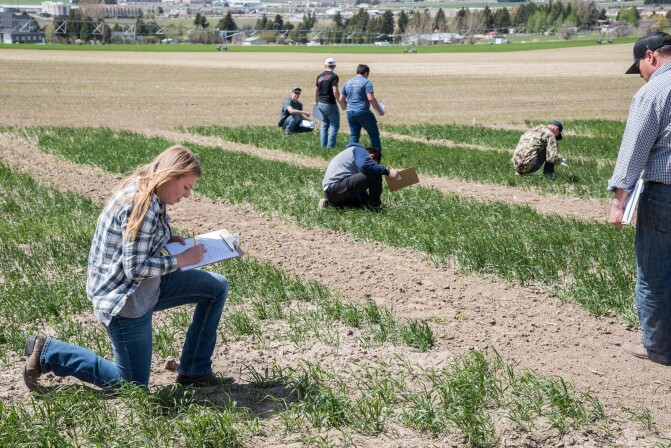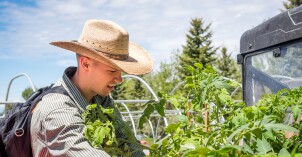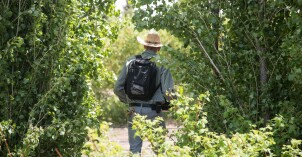
Gain Hands-On Experience
In this degree, you'll complete core courses and select from five focus areas to customize your degree for your career. You could choose professional fields like the agricultural services industry, private consulting, horticulture crop production, agriculture education, environmental services, government agricultural agencies, machinery management, or research and development.
You will use quantitative reasoning to measure, analyze, and find solutions for plant- and technology-based problems. You'll also learn to communicate plant science and technology ideas through written, visual, and oral formats to various audiences. This includes demonstrating the application of technology in plant systems and understanding the core principles.
You will use quantitative reasoning to measure, analyze, and find solutions for plant- and technology-based problems. You'll also learn to communicate plant science and technology ideas through written, visual, and oral formats to various audiences. This includes demonstrating the application of technology in plant systems and understanding the core principles.
Highlighted Career Paths
Graduates with a degree in Plant Science & Technology have a wide array of rewarding careers before them. Check out some of the top careers students get with this degree or explore more career options in I-Plan.
Agricultural Services Industry
Those who work in the Agricultural Services Industry typically plant, inspect, and harvest crops, irrigate farm soil and maintain ditches or pipes and pumps, and operate and service farm machinery and tools.
Private Consulting
Students who pursue private consulting can expect to provide advice on the use and management of agricultural land. Typically, private consultants specialize either in business or technical expertise. Specialists in the business area advise agricultural landowners on financial issues and business strategy. Technical specialists consider how to make the most effective use of the land.
Agronomic and Horticultural Crop Production
Agronomists study soil, seeds, plants, and products to better understand the needs of crops in order to develop more efficient and effective farming practices. They consult farms on fertilizer, crop production, seeds, and more in order to troubleshoot issues and provide expert advice to farms on maximizing production.
Agricultural Education
Educators of agriculture help their students understand the science, math, communications, management, technology, and leadership behind agriculture. They educate their students about food and natural resources, and how to best cultivate and care for them.
Environmental Services
Environmental service workers use knowledge of science and engineering to meet environmental regulations and develop new methods to prevent accidents or dangerous situations. They coordinate various state and federal regulatory programs concerning environmental and consumer protection issues.
Government Agricultural Agencies
Students who desire to pursue advanced studies and a career in government agricultural agencies can expect to use managerial, political, economic, and food science skills to oversee and inspect agency operations within the agriculture industry.
Machinery Management
Those who work in the machinery management industry should expect to maintain inventory, storage, and distribution of farm equipment, provide recommendations for purchases, and collaborate with others to prepare and implement budgets.
Research & Development
Researchers and developers create research programs incorporating current developments to improve existing products and study the potential of new products within the agriculture field.
Getting Started in this degree
If you are interested in Plant Science & Technology, start with one of the following major-specific courses


